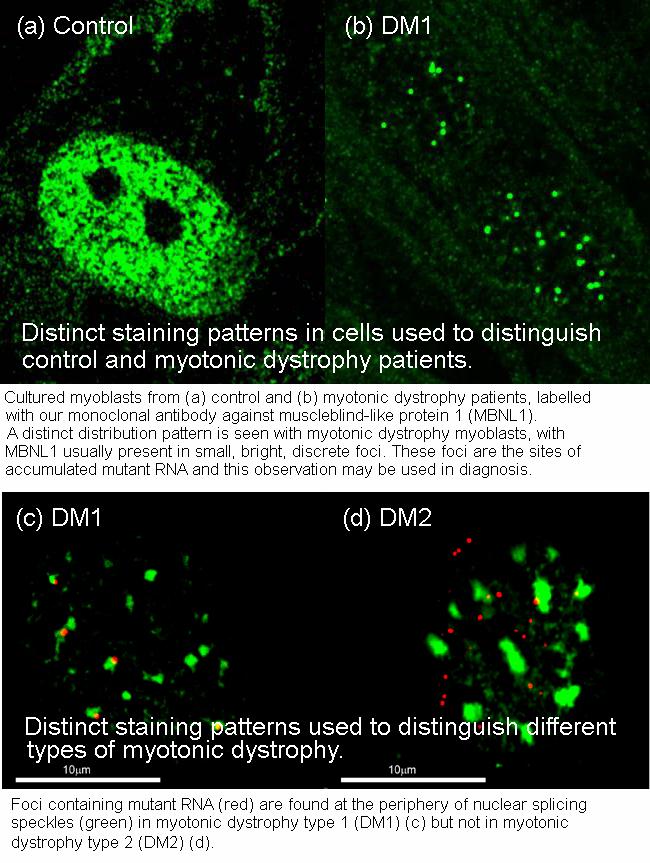Biography
Laboratory-based research since 1999 on the biochemistry and cell biology of inherited neuromuscular disease. Currently leading Monoclonal Antibody and Confocal Microscopy Research at the Wolfson Centre for Inherited Neuromuscular Disease (Research Director: Prof Glenn Morris). Our main aim is to produce highly specific monoclonal antibodies and to apply these antibodies ourselves and in collaboration with others, to research the pathogenesis of neuromuscular disease, to investigate potential therapies and to use as diagnostic tools and for monitoring clinical trials. Current project is the functions and roles of nesprin proteins in the pathogenesis of inherited cardiomyopathy. Other projects included myotonic dystrophy, Emery-Dreifuss muscular dystrophy and congenital muscular dystrophies, working with a large network of national and international scientific and clinical collaborators. Recent collaborators include groups in London, Nottingham, Glasgow, France, Holland, Germany, USA and Canada.
Earlier experience included research into metabolic bone disease (PhD, University of Manchester) and Rheumatology (MSc, University of Manchester).
Research and scholarship
Main Research Interests:
- Nesprin Isoforms and Variants: their Functions and Roles in the Pathogenesis of Inherited Cardiomyopathy.
- Myotonic dystrophy.
- Emery-Dreifuss muscular dystrophy.
Other Information:
Associate Editor of “Translational Neuroscience” since 2010.

Research Impacts (Lay Summary)
Research Impacts (Lay Summary):
Over 70,000 people in the UK alone are living with a serious neuromuscular condition, many of them are young children and at present there are usually no effective treatments.
Myotonic dystrophy is the most common form of muscular dystrophy in adults but it is especially distressing for parents when a baby is born with congenital myotonic dystrophy. These babies are often born prematurely. Those that survive are often floppy and weak, with difficulty with sucking, swallowing and breathing. Working with the Great Ormond Street Children’s Hospital, we have developed a rapid and non-invasive diagnostic test for myotonic dystrophy in floppy babies based on antibodies produced in Oswestry. Other antibodies from Oswestry (anti-MSH3) will be used by international collaborators to search for drugs that will directly reduce the genetic defect in myotonic dystrophy patients, as well as novel anti-cancer drugs. We are also participating in an international effort to improve diagnostic tests for congenital muscular dystrophies using new antibodies.
The British Heart Foundation is also supporting us to produce new antibodies that will help researchers understand both serious heart disease (cardiomyopathy) and the very common minor heart perturbations (conduction defects) that affect a large proportion of the UK population.
School address:
School of Pharmacy and Bioengineering
Hornbeam Building
Keele University
Staffordshire
ST5 5BG
Research centre address:
School of Pharmacy and Bioengineering
Guy Hilton Research Centre
Thornburrow Drive
Stoke-on-Trent
ST4 7QB
Tel: +44 (0) 1782 674988
Undergraduate enquiries:
Email: enquiries@keele.ac.uk
Tel: +44 (0)1782 734010
Postgraduate enquiries:
Please contact the CPD4ALL team:
Email: phab.postgraduate@keele.ac.uk
Keele Centre for Medicines Optimisation (KCMO)
Tel: +44 (0)1782 733831 / 734131
The Virtual Patient project enquiries:
Contact our Digital Development team:
Email: pharmacy.digital@keele.ac.uk


